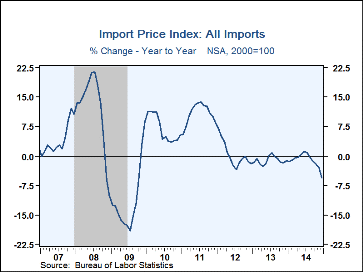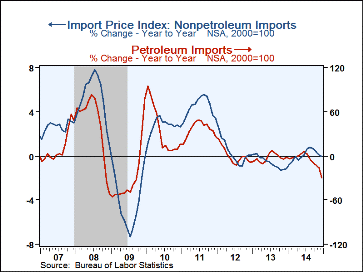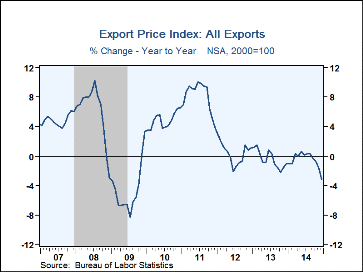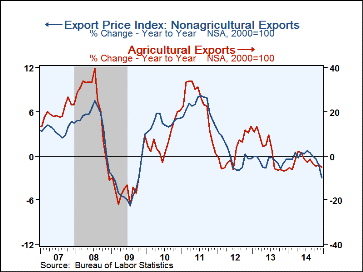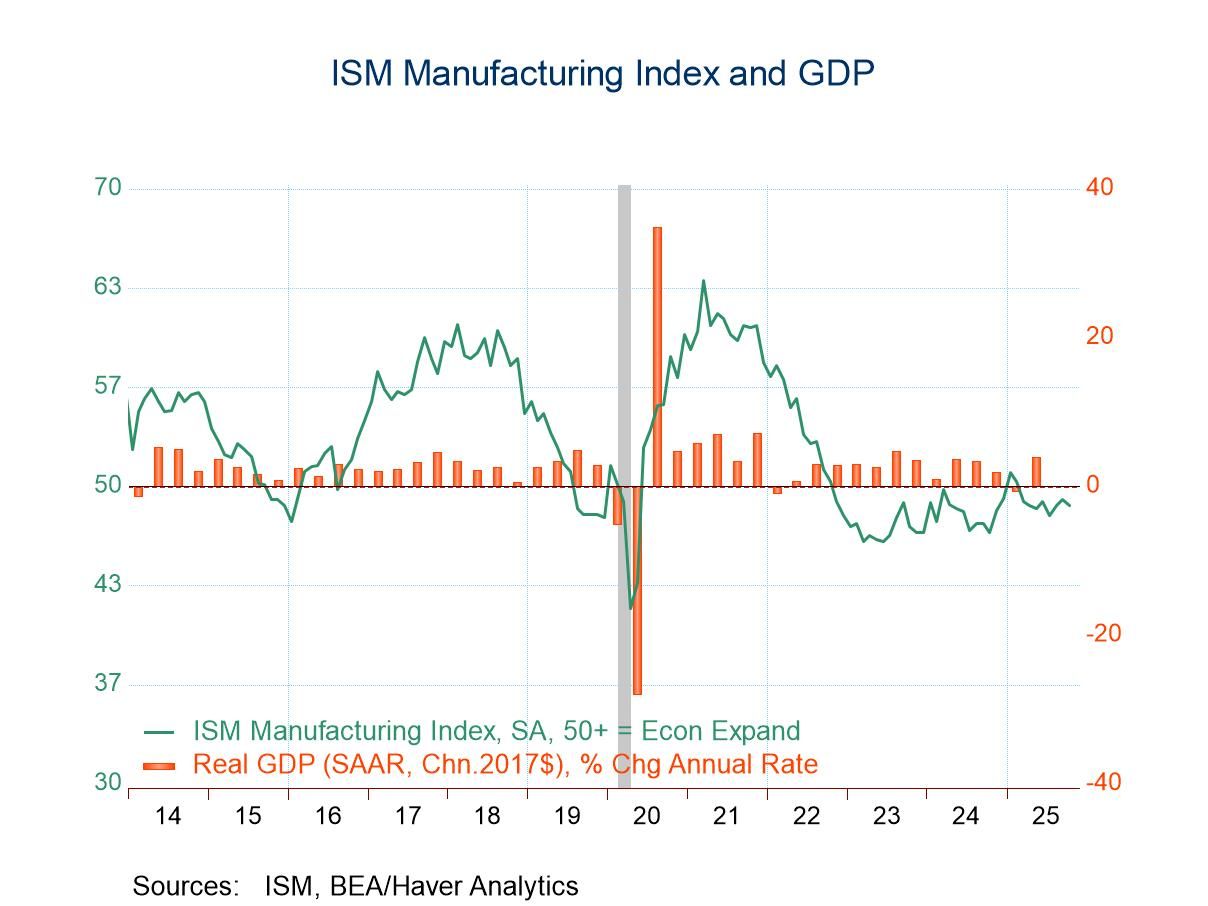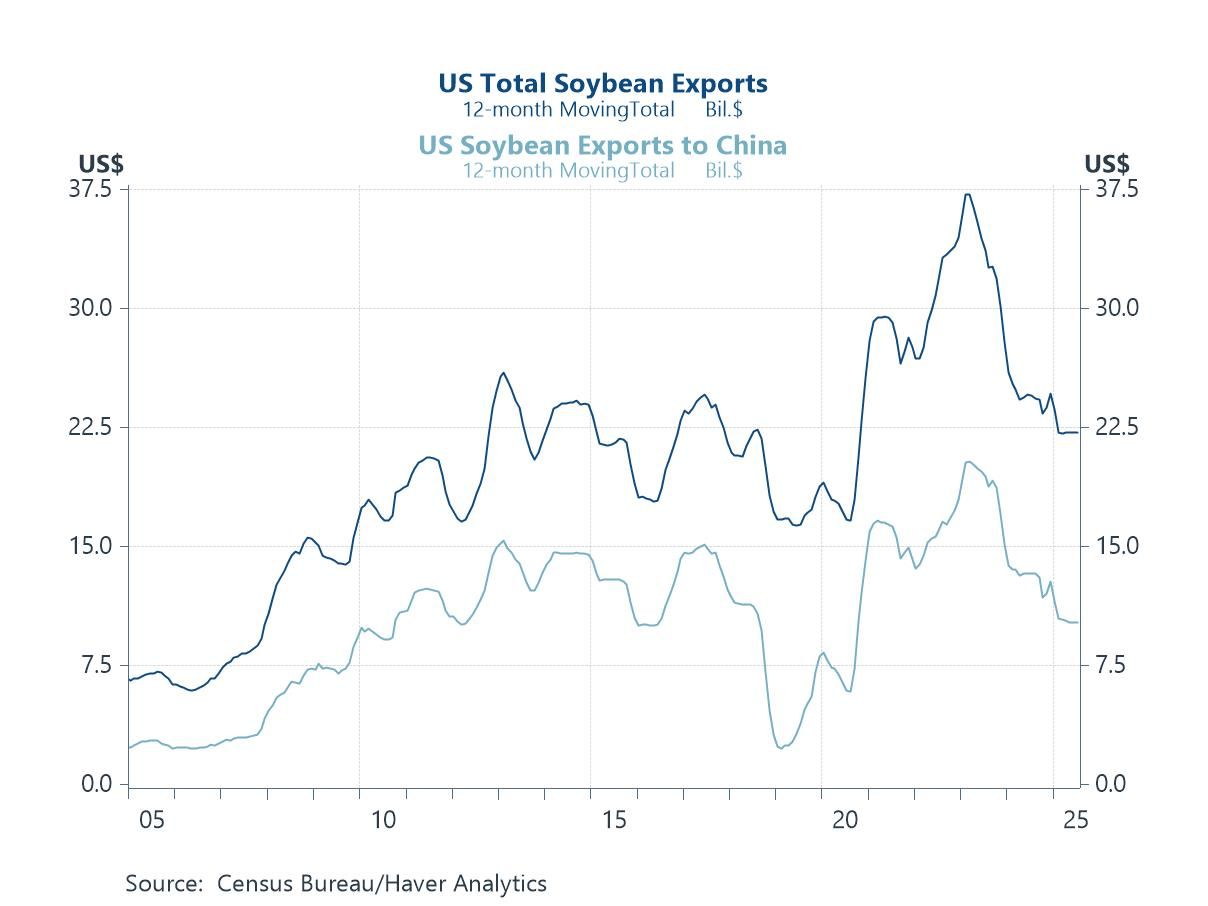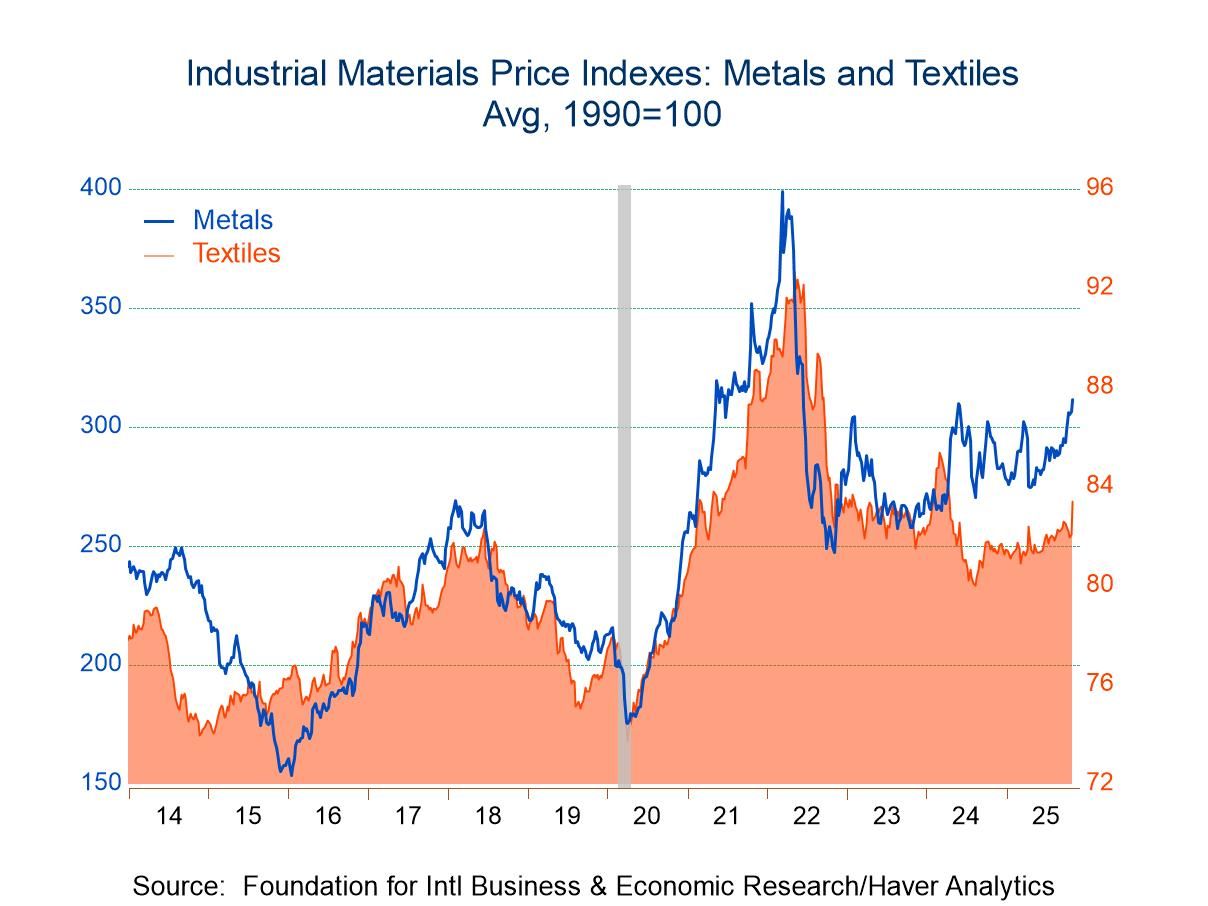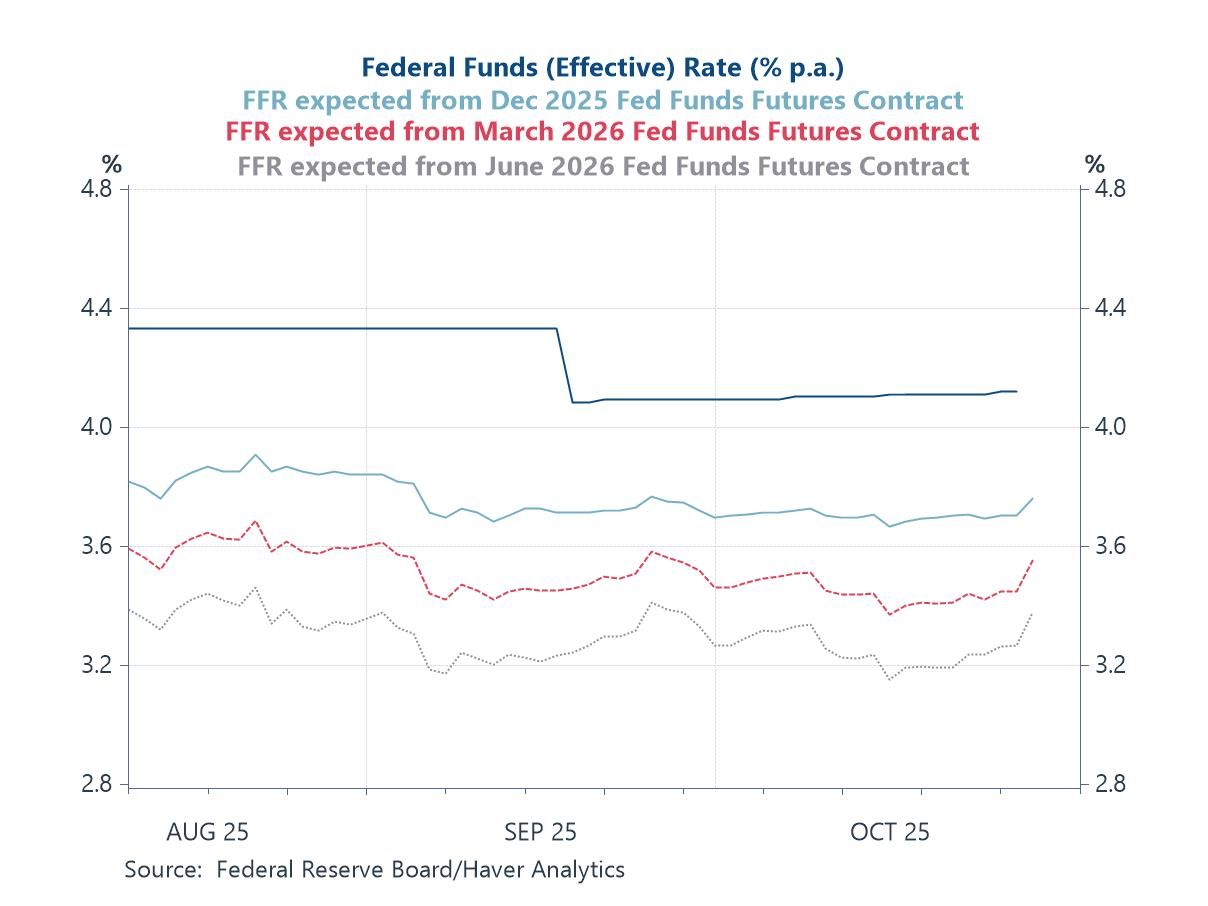 Global| Jan 14 2015
Global| Jan 14 2015U.S. Import Prices Led Lower by Petroleum
by:Tom Moeller
|in:Economy in Brief
Summary
Import prices declined 2.5% (-5.5% y/y) during December following a 1.8% November drop, earlier reported as -1.5%. It was the largest of six straight months of decline and matched expectations in the Action Economics Forecast Survey. [...]
Import prices declined 2.5% (-5.5% y/y) during December following a 1.8% November drop, earlier reported as -1.5%. It was the largest of six straight months of decline and matched expectations in the Action Economics Forecast Survey. A 16.6% fall (-30.1% y/y) in petroleum prices led the decline in import costs. Showing stability were nonoil prices as they ticked 0.1% higher (0.0% y/y), but that followed monthly declines extending back to April. For all of last year, import prices repeated a 1.1% decline as oil prices fell 5.5% and nonpetroleum costs edged 0.1% higher.
Last month's 0.1% rise in nonoil import prices reflected a 0.9% increase (3.8% y/y) in prices for foods, feeds & beverages. Pricing was weak elsewhere. Nonauto consumer goods prices declined 0.2% (+0.6% y/y) and have been down or unchanged for six straight months. Capital goods prices moved 0.1% lower (-0.5% y/y) and automotive costs were unchanged (-0.8% y/y). Industrial materials prices fell 8.5% (-17.3% y/y) but excluding petroleum they rose 0.6% (-0.7% y/y).
Export prices fell 1.2% (-3.2% y/y), the fifth consecutive monthly decline, and for all of last year they moved 0.5% lower. A 3.3% decline (-9.0% y/y) in industrial supplies & materials prices paced the price weakness. Petroleum prices fell 13.1% (-28.8% y/y) and foods, feeds & beverage prices also were off by 0.9% (-4.2% y/y). Nonauto consumer goods prices declined 0.2% (-0.6% y/y), the fourth straight monthly fall. Auto prices were unchanged (0.5% y/y) for a second straight month while capital goods prices also were unchanged (0.7% y/y) as they have been for four straight months.
The import and export price series can be found in Haver's USECON database. Detailed figures are available in the USINT database. The expectations figure from the Action Economics Forecast Survey is in the AS1REPNA database.
| Import/Export Prices (NSA, %) | Dec | Nov | Oct | Dec Y/Y | 2014 | 2013 | 2012 |
|---|---|---|---|---|---|---|---|
| Imports - All Commodities | -2.5 | -1.8 | -1.4 | -5.5 | -1.1 | -1.1 | 0.3 |
| Petroleum | -16.6 | -9.1 | -7.1 | -30.1 | -5.5 | -2.6 | -0.3 |
| Nonpetroleum | 0.1 | -0.3 | -0.2 | 0.0 | 0.1 | -0.6 | 0.3 |
| Exports - All Commodities | -1.2 | -0.8 | -0.9 | -3.2 | -0.5 | -0.4 | 0.4 |
| Agricultural | -0.7 | 0.4 | -2.2 | -4.9 | -2.6 | 1.6 | 2.4 |
| Nonagricultural | -1.2 | -1.0 | -0.7 | -2.9 | -0.3 | -0.7 | 0.1 |
Tom Moeller
AuthorMore in Author Profile »Prior to joining Haver Analytics in 2000, Mr. Moeller worked as the Economist at Chancellor Capital Management from 1985 to 1999. There, he developed comprehensive economic forecasts and interpreted economic data for equity and fixed income portfolio managers. Also at Chancellor, Mr. Moeller worked as an equity analyst and was responsible for researching and rating companies in the economically sensitive automobile and housing industries for investment in Chancellor’s equity portfolio. Prior to joining Chancellor, Mr. Moeller was an Economist at Citibank from 1979 to 1984. He also analyzed pricing behavior in the metals industry for the Council on Wage and Price Stability in Washington, D.C. In 1999, Mr. Moeller received the award for most accurate forecast from the Forecasters' Club of New York. From 1990 to 1992 he was President of the New York Association for Business Economists. Mr. Moeller earned an M.B.A. in Finance from Fordham University, where he graduated in 1987. He holds a Bachelor of Arts in Economics from George Washington University.


